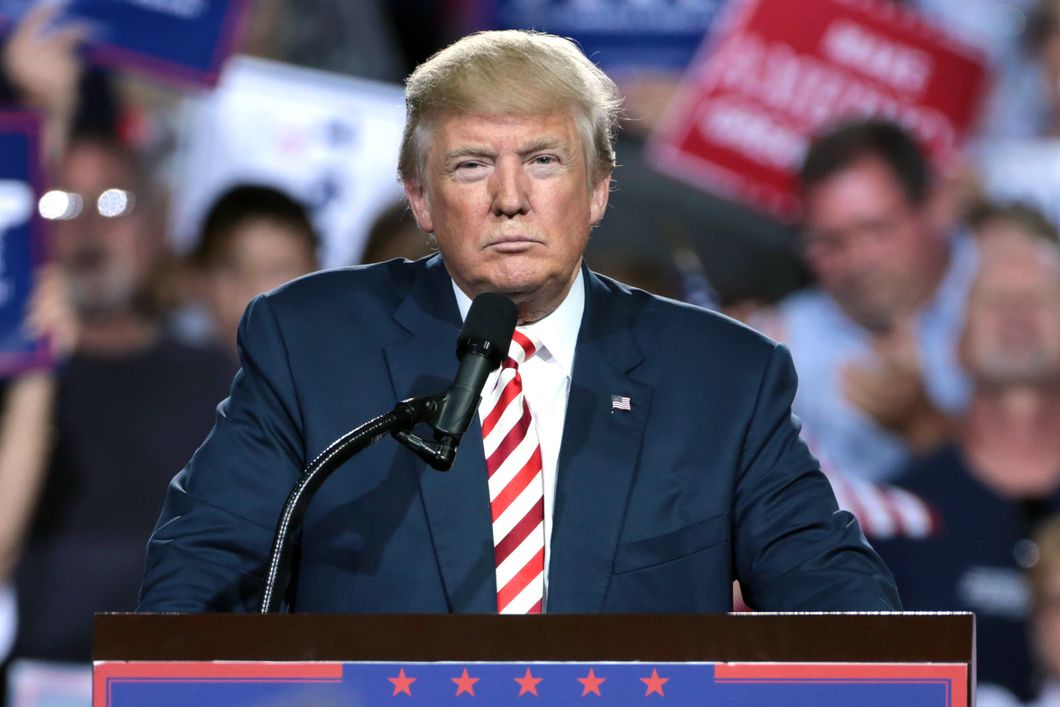President Donald J. Trump believes that he is above the law. At least, that is what the main takeaway was from the the confidential 20-page memo sent by President Trump's lawyers.
Trump stated that he has the absolute right to "pardon himself," adding that he has done "nothing wrong."
The tweet followed the release of a confidential letter from The New York Times. Argued to Special Counsel Robert Mueller, Trump's lawyers claim that the president's powers mean that he has the ability to pardon himself.
For months, President Trump's lawyers have waged a campaign to keep the special counsel, headed by Robert Mueller, from trying to force him to answer questions in the investigation about whether he obstructed justice.
His lawyers assert that he cannot be compelled to testify and arguing in a confidential letter that he has unconstrained authority over all federal investigations.
The memo claims that the president cannot illegally stop any attempt into the investigation of Russia's election controversy because the Constitution empowers him to, "if he wished, terminate the inquiry, or even exercise his power to pardon."
In addition, according to Trump's lawyers, Mueller's investigation of Russia "endangered the safety and security of our country." Mr. Trump's lawyers fear that if he answers questions surrounding the investigation, either voluntarily or in front of a grand jury, he risks exposing himself. The exposure could result in the accusation of lying to investigators, a potential crime or impeachable offense.
In January, the letter, written by the president's lawyers, was hand-delivered to the special counsel's office. The letter offers a glimpse into the high-stakes negotiations over a presidential interview. Although it is written as a presidential defense, the letter recalls the drama unveiled in early 2017 as the administration dealt with the beginning of the Russia investigation.
However, President Trump complained on Twitter that the disclosure of the letter was a damaging leak to the news media. In addition, he asked whether the "expensive Witch Hunt Hoax" would ever end.
President Trump's lack of truthfulness has become a central point in the Russia investigation. There is no precedent for a president of the United States to spend so much time and energy telling "non-truths." Although past presidents have omitted information about the complete, or been misinformed, none have committed to lying to the public in the way Trump does almost every day.
It appears that he is trying to create an atmosphere for the country where reality is irrelevant and his word is the only truth. Despite controversy over all the claims that Trump makes, it would be unreasonable to assume that everything was a honest mistake. If that were the case, an apology would be announced.
For the past year, Trump's lawyers have been advising the president that he has the constitutional powers to impede any investigation as a result of his title, despite the obstruction-of-justice laws set in place that mandates everyone has to follow them. The Trump team claims that the laws do not apply to the president, thus causing numerous disputes to arise as to the constitutional power of legal laws.
While there are checks and balances in the governmental system that can help dictate the president's authority, none of the checks and balances diminish the ultimate constitutional responsibility of the president in investigations. President Trump's defense is a wide array of interpretations of presidential power. His lawyers, in many of their statements, have left ambiguous meaning their interpretation of his authority.
President Trump's interpretation of executive authority is contemporary and is likely to be tested in front of a grand jury in the event of a court battle over his requirement to answer questions. It is unclear how that fight, should the case reach that point, would play out in court.






















